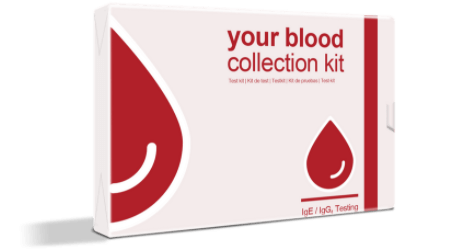Irritable bowel syndrome, commonly referred to as IBS, is an intestinal disorder that causes diarrhoea, constipation and stomach pain in varying degrees at seemingly random times. Irritable bowel syndrome affects the colon which is usually known as the large intestine to most people. IBS is a mix of belly or stomach discomfort and having difficulties during bowel movements. If you know that you have IBS, then you are probably wondering what an IBS diet is and what it’s going to offer for your overall quality of life.
Causes and triggers of Irritable Bowel Syndrome
The specific cause of IBS are still not clear despite extensive study, but there are factors that seem to play a role towards irritable bowel syndrome. Generally, symptoms of irritable bowel syndrome are triggered by foods that don’t agree with your stomach in some form. These foods, according to research, could include high fibre foods such as nuts, popcorn, or pastas; dietary goods including diet sodas, low-fat foods and even sugar-free candies; alcohol and caffeine even in small dosages; condiments such as salad dressings, etc [1]. Unfortunately, a lot of the foods on that list are favourites, particularly for meals or desserts. It’s also a very broad list and it feel as though basically everything is on it.
Stress is another factor that could heighten symptoms of irritable bowel syndrome that you are feeling. Most people with IBS experience worse digestive symptoms during times of increased stress. It’s important to note, however, that though stress may trigger the symptoms in severity, it doesn’t cause them. Similarly, it’s thought that hormones are another trigger. As such, females are more likely to have irritable bowel syndrome and deal with symptoms as a result [2].
Another potential trigger for the IBS symptoms is that you may be intolerant or allergic to one of these foods, and the symptoms you are feeling are actually related to food intolerance or food allergies, though this is yet to be expanded on. Regardless of what the potential trigger is, it’s best to take certain steps to try and avoid any symptoms by looking into an IBS diet. Not restrictive, despite what the word “diet” may lead you to believe, this can help you enjoy a symptom-reduced day to day life so that you can get back to enjoying a better relationship with food
What to eat for an IBS diet
Let’s check out the foods that are advisable to eat when you have irritable bowel syndrome. Foods rich in fiber like whole grains, vegetables, and fruits help reduce constipation that is commonly felt, but you will need to carefully monitor how much you eat of each (as they can also trigger reactions). If you are suffering from bloat, however, then you should focus on increased amounts of soluble fiber which is found on fruits and vegetables. As far as a typical IBS diet is concerned, you can focus your attention on good gut foods such as water, rice, baked potatoes, chicken or turkey, eggs, soy products, applesauce and peanut butter [1]. Sure, it sounds ecclectic, but there are plenty of IBS diet recipes that you can find online to help you make sense of it all.
A gluten-free diet is also a great option to consider. Gluten is a protein found on grain foodstuffs such as bread. If you are gluten intolerant the protein may damage your intestines over time and abuse. Try going without wheat and barley and observe if your gastrointestinal problems will get better. If you can not go without bread, there are gluten-free products at the store that you can try to keep you reduced or free from IBS symptoms.
You can also consider the elimination diet, which is simply avoiding specific foods for a duration of time and make observations on any improvements on your irritable bowel syndrome symptoms. Put down the foods you suspect to be problems on a list, completely eliminate one food for three months, one at a time, checking for improvements on your symptoms. This should always be done with the support and guidance or a licensed dietician or nutritionist so that you keep you nutrient and health in check while doing it.
Would you like to know more about a food intolerance test and what we can do for you to feel better each day and still enjoy your food? Feel free to log on to our website and order a test today. If you are not sure which test would be right for you, then please speak with our Customer Service advisors via LiveChat as they will be happy to help you in any way they can. You deserve to enjoy food again, and learning how IBS and its connection to food works will help you to do that, one meal at a time!
References:
[1] MacDermott, R.P., 2007. Treatment of irritable bowel syndrome in outpatients with inflammatory bowel disease using a food and beverage intolerance, food and beverage avoidance diet. Inflammatory bowel diseases, 13(1), pp.91-96. Available at: https://academic.oup.com/ibdjournal/article/13/1/91/4644626
[2] Böhn, L., Störsrud, S., Törnblom, H., Bengtsson, U. and Simrén, M., 2013. Self-reported food-related gastrointestinal symptoms in IBS are common and associated with more severe symptoms and reduced quality of life. American Journal of Gastroenterology, 108(5), pp.634-641. Available at: https://journals.lww.com/ajg/Abstract/2013/05000/Self_Reported_Food_Related_Gastrointestinal.2.aspx


